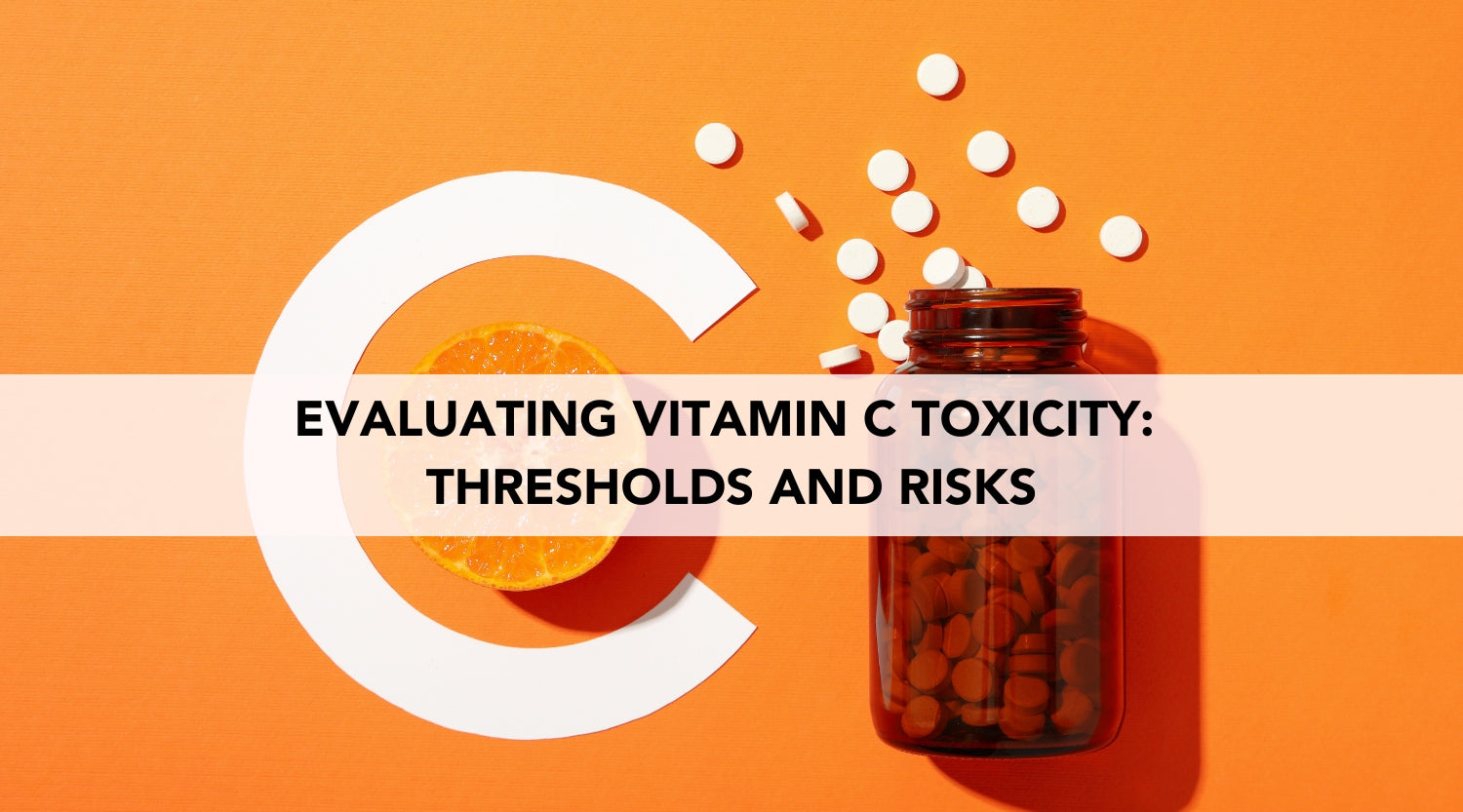
Navigating the Nuances of Vitamin C Toxicity: Understanding the Thresholds and Risks
The Science of Vitamin C Toxicity: Exploring the Data
Understanding the Mechanisms of Vitamin C Toxicity
Vitamin C, also known as ascorbic acid, is vital for our health. But too much can harm us. How does this happen? Our bodies can't store vitamin C. Any extra gets flushed out. However, if we take a lot in a short time, it can build up in the body. This may lead to stomach upsets and kidney stones. In severe cases, it can cause kidney damage. But this is rare. Most people don't reach these high levels. The key is to take the right amount. Aim for balance to keep your body safe and healthy.
Establishing Toxic Thresholds for Vitamin C Intake
When it comes to Vitamin C, balance is key. Taking too much can harm your body. Scientists have worked to find safe limits for intake. Most adults can have up to 2,000 milligrams per day without harm. This is the upper safe level set by experts. Going past this limit could lead to problems, like stomach upset and kidney stones. To stay safe, read labels and talk to a doctor before taking supplements. Those with health issues must be extra careful.
Implications of Vitamin C Toxicity for Health and Well-being
Assessing the Risks to Consumers Taking Vitamin Supplements
Vitamin C is vital but too much can harm. Overdose risks are real for supplement users. Taking high doses can lead to side effects. These may include stomach upset and kidney stones. We must know safe limits to avoid health issues. Consumers should check with health experts. This helps to find the right dose for their needs. It’s important to balance between benefit and risk. Always read labels and follow dose guidelines. With care, vitamin C can be a safe addition to diets.
The Relationship Between Vitamin C and Kidney Health
Vitamin C is often seen as a benign supplement, but its relationship with kidney health is a serious consideration. Excessive vitamin C can lead to the formation of kidney stones. This happens when the body metabolizes the vitamin into oxalates. These oxalates can accumulate and form crystals in the kidneys. Risk factors include high doses of vitamin C, especially in those with a history of kidney stones. Long-term high intake can also affect kidney function. It's key for individuals to monitor their vitamin C consumption. Health professionals can provide guidance on safe levels. Monitoring is vital to prevent potential kidney health issues related to too much vitamin C.
Strategies for Safely Incorporating Vitamin C into Diet and Supplement Regimens
Best Practices for Health Supplements Consumers
- Research vitamin C products before buying. Opt for reputable brands.
- Check with health professionals on the right dosage for individual needs.
- Read labels carefully to understand the amount of vitamin C per serving.
- Start with low doses and observe how your body responds.
- Space out vitamin C intake throughout the day for better absorption.
- Balance vitamin C supplements with a diet rich in fruits and vegetables.
- Keep track of all supplement intake to avoid exceeding recommended limits.
- Stay informed on new research regarding vitamin C and supplement safety.
- Recognize signs of potential toxicity, like stomach upset and seek advice.
How to Assess and Adapt Vitamin C Intake for Optimal Health
Assessing and adapting Vitamin C intake is crucial for maintaining optimal health. Here's how:
- Consult Healthcare Providers: Before starting any supplement regimen, seek advice from doctors or dietitians.
- Understand Daily Requirements: Know the Recommended Dietary Allowance (RDA) for your age group and adjust your intake accordingly.
- Monitor Your Health: Watch for symptoms of excess Vitamin C, such as gastrointestinal distress or kidney stones.
- Balance With Diet: Prioritize Vitamin C-rich foods over supplements and pair them with a balanced diet.
- Read Labels Carefully: Check the dosage in supplements and be wary of products with mega doses.
- Limit Use of High-Dose Supplements: Only take high doses if prescribed and for a short duration.
- Regular Testing: Consider regular blood tests to monitor Vitamin C levels if you're taking high-dose supplements.
- Stay Informed: Keep up with the latest research on Vitamin C to make informed decisions about your health.
Share
